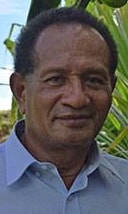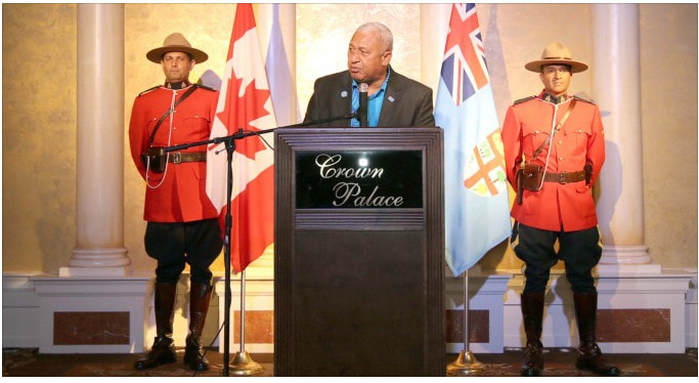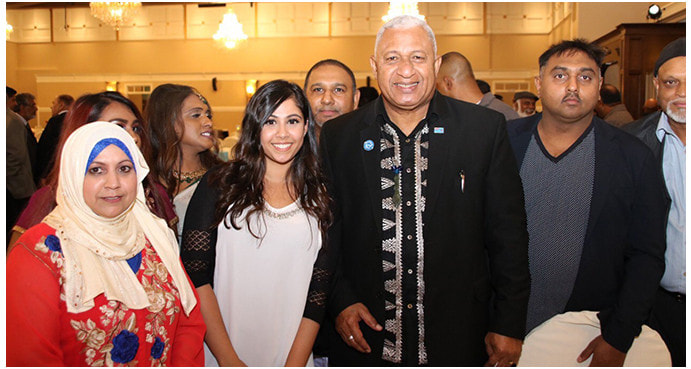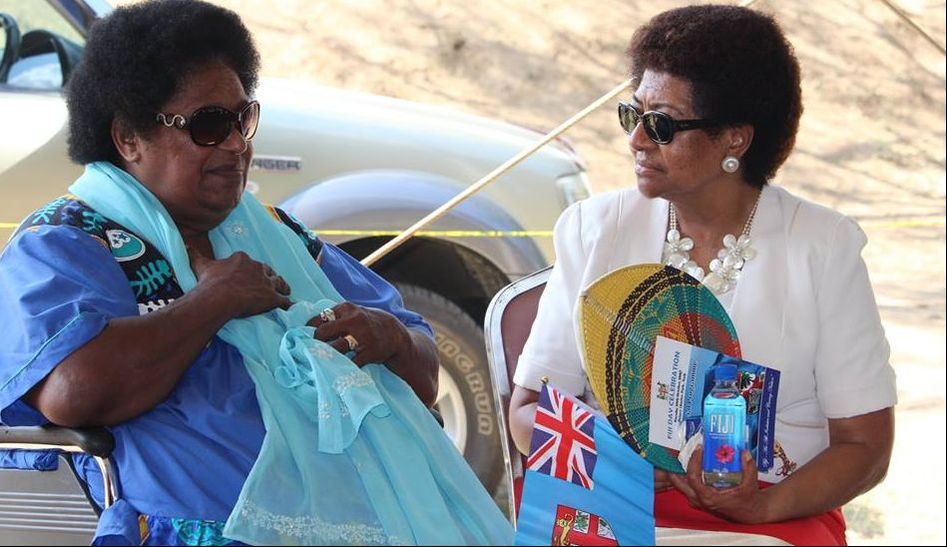And why Bainimarama did not apologize for the 5 December 2006 COUP?
 Dakuvula
Dakuvula The Editor
Fiji Times
Suva
I refer to the article of Aqela Susu headed, “Dark Days are Over, PM” (FT 5/10/17) with reference to which you have invited comments from the public.
The article reported Prime Minister Bainimarama speaking to the Fijian migrant community in Vancouver, Canada and he apologised for the coups of 1987 and 2000.
He said he “was prepared to do whatever was necessary to right the wrong done to many Fijians who were victims of those two events”.
These are my comments on the topic:
- The PM referred only to the coups of 1987 and 2000 and apologized for them and not the coup of December 2006.
- Why did he apologize for these to the migrants in Canada and not the people still living in Fiji who were hurt by them?
- With respect to the 1987 Coups, the instigator, Sitiveni Rabuka had already apologized to the victims publicly a number of times and I still have copies of these apologies that were published in the Fiji Times. I know Rabuka’s apologies have not been accepted by some people but what was the need for Bainimarama to apologize for them again?
- Rabuka had also made the most significant reconciliation action for the wrongs of 1987 coup by inviting the members of that deposed Coalition government to agree on the review of the decreed 1990 Constitution resulting in its repeal and, the unanimous passing by both houses of Parliament of the 1997 Constitution. That is the Constitution that Bainimarama had abrogated twice, in 2000 and in 2006.
- Rabuka had presented a “Matanigasau” apology to the family and Tokatoka of the late Prime Minister Dr Timoci Bavadra soon after his SVT party was defeated in the 1999 Election. Does Bainimarama have any plan to make a similar apology to the elected Prime Minister he deposed who is still alive?
- There are also members of the Coalition government led by Laisenia Qarase (SDL and the FLP) who were hurt by the Coup of 2006 and his abrogation (with the support of Aiyaz Khaiyum) of the 1997 Constitution and its replacement by decree by the current Constitution. Does he have any plan to right these unlawful actions?
- Will he and Mr Khaiyum also apologise to Professor Yash Ghai and his Constitution Commission members and, thousands of Fiji citizens who made submissions to that Commission, for the burning of their Report and draft Constitution therein?
- Will he also apologise to Mahendra Chaudhry and the Members of his deposed Government for the unlawful release of arms from RFMF armoury to George Speight and his group to seize and hold hostage the members of that Coalition government in May 1999? Who authorised the release of those arms?
- Will the Prime Minister and Mr Khaiyum apologize to and compensate the three Opposition MP’s that his government unlawfully expelled from Parliament in the last three years for their loss of income, humiliation and hurt to themselves and their families?
There are indeed many events in our recent history, including the coups for which there are still wounds that might be healed by genuine apology and reconciliation. These should not continue to be ignored or swept under the historical carpet.
Apologizing to migrants in Canada is good but what about the injured citizens who are still living in this country?
The dark days are far from over and many wrongs still need to be righted.
Jone Dakuvula
SUVA
“Tonight, I carry the same message that I had brought with me two years ago: the dark days are over. You all belong in the new Fiji. You are all part of our Fijian family and, as we chart a path of unprecedented progress for Fiji, we welcome all of you to join us. I am prepared to do whatever is necessary to right the wrongs done to so many of you, that is why I am here today and why I hope to work side-by-side with all of you to continue our work to build the new Fiji. The darkest parts of Fijian history were those times that we failed to recognise these common bonds—something that many in this room are all too familiar with. The events of 1987 and 2000 that drove many of you away from our home left a gaping hole in the heart of our nation and set us back decades, threatening the future of our beloved Fiji and the prosperity of every Fijian. Those events stripped us of many of our best and brightest, causing lasting damage to the character of our nation and to the prospects for our economy. I know that depth of that pain does not fade with time so, again, I ask that you please accept our apologies for what you’ve suffered."
Bainimarama in his Canadian speech
RO TEIMUMU KEPA reflects on Fiji's Independence Day:
"In the last 11 years, the spirit of freedom, justice and unity has taken a beating at the hands of draconian legislations, failed leadership and poor governance. There is little doubt that the people of Fiji have lost their sense of belongingness and ownership."
We have indeed come of age to celebrate our national life as a diverse nation despite adverse political circumstances in the last eleven years.
Fiji’s independence came about because there was a quest for freedom, justice and unity amongst its leaders and people to determine our future and I must pay tribute to all our founding leaders and people who continue to display those virtues to make Fiji what it was prior to December 5, 2006.
In the last 11 years, the spirit of freedom, justice and unity has taken a beating at the hands of draconian legislations, failed leadership and poor governance.
There is little doubt that the people of Fiji have lost their sense of belongingness and ownership.
It is time to restore the goodness, faith and trust of our own people in Fiji before we move on to reclaim Fiji’s standing as a democratic and just nation in the international fora.
There are pressing issues to deal with and potentials to tap. We cannot and should not fiddle with our future.
I call upon all the citizens and friends of Fiji to join us in our quest to seek a Fiji that is free, just, democratic and united so as to lay the basis for a durable, stable and progressive nation."




